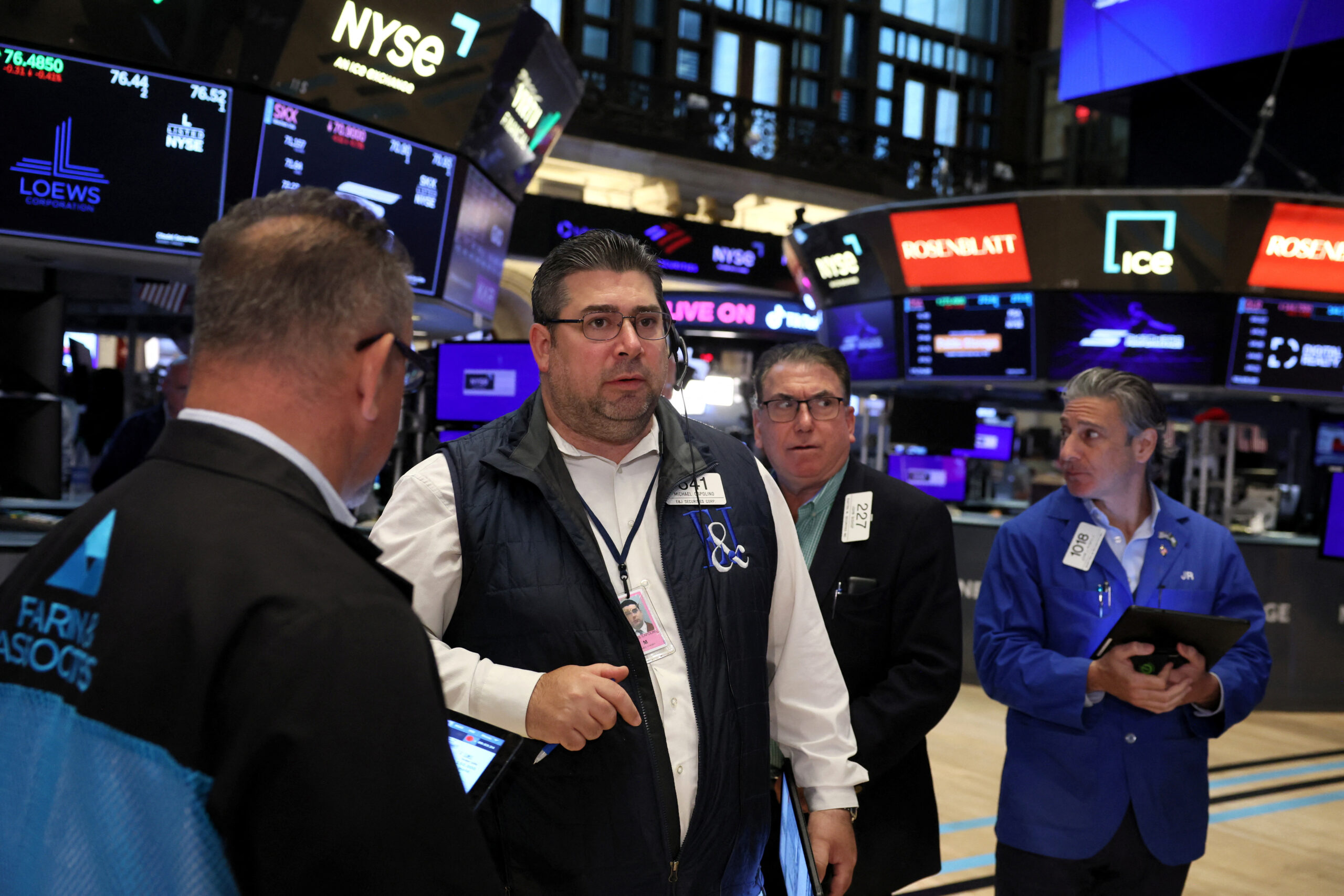Stocks declined for a second consecutive day on Friday, as the excitement surrounding Donald Trump’s pro-business agenda began to wane. Concerns over the Federal Reserve’s pace of policy easing and the potential economic costs of Trump’s fiscal plans weighed heavily on markets.
The S&P 500 dropped 1.5%, with the tech-heavy Nasdaq 100 sliding more than 2%. Losses were broad-based, with major technology stocks leading the declines. The “Magnificent Seven” megacap stocks saw significant pullbacks, with Amazon, Nvidia, and Meta Platforms shedding more than 3% each. Tesla, owned by Elon Musk, was the sole exception, eking out a modest gain.
The selloff was exacerbated by renewed doubts over the likelihood of a Federal Reserve rate cut in December. Traders are now pricing just over a 50% chance of a quarter-point reduction, down from 80% earlier this week. Fed Chair Jerome Powell’s cautious remarks on Thursday, suggesting that the central bank may take its time easing monetary policy, prompted a reassessment of expectations. Boston Fed President Susan Collins added on Friday that while a December cut remains on the table, the Fed’s decisions will depend on incoming data.
John Davi, CEO and CIO at Astoria Advisors, attributed the market’s weakness to Powell’s comments. “The market is expensive, and Powell basically saying Fed officials don’t need to rush to lower rates is probably the main reason why we’re selling off today,” he said. “The higher rates go, the more equity risk premiums tilt in favor of bonds.”
Investor concerns are also growing over the potential inflationary impact of Trump’s fiscal policies. Charles-Henry Monchau, Chief Investment Officer at Banque Syz & Co., highlighted the risks of larger budget deficits and higher debt levels, warning that these could stoke inflationary pressures. “There’s been a realization that there is a price to pay for this,” Monchau said.
Adding to market unease, shares of drugmakers Moderna and Pfizer came under pressure after Trump named vaccine skeptic Robert F. Kennedy Jr. to a prominent health-policy role in his administration. The controversial appointment has raised questions about the future direction of U.S. health policy under Trump’s leadership.
Bitcoin, another so-called “Trump trade,” also retreated after hitting a record high above $93,000 earlier this week on hopes of crypto-friendly policies from the new administration. The cryptocurrency slipped below $90,000 on Friday, marking a pause in its recent rally.
Amid the market volatility, the greenback eased from two-year highs but remains on track for its seventh straight weekly gain.
As the initial optimism surrounding Trump’s fiscal and economic plans fades, investors are grappling with the reality of potential inflation, fiscal deficits, and the Federal Reserve’s cautious stance. With markets now recalibrating their expectations, the coming weeks will be critical in determining the trajectory of Trump trades and broader economic sentiment.
Sources:
- Bloomberg – Analysis of market reactions and Trump’s fiscal policies.
- Federal Reserve statements by Jerome Powell and Susan Collins.
- Trading data on the S&P 500, Nasdaq 100, and Bitcoin from market reports.
- Corporate performance reports on Tesla, Amazon, Nvidia, Moderna, and Pfizer.

